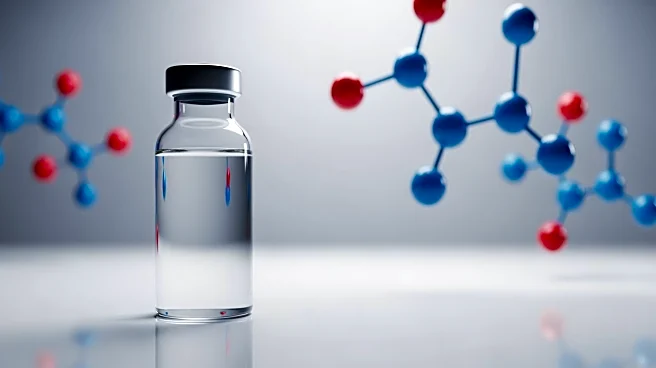What is the story about?
What's Happening?
President Trump has announced a 100% tariff on branded or patented pharmaceutical products, effective October 1. This tariff will not apply to companies that are actively constructing manufacturing facilities in the U.S. The announcement, made via a Truth Social post, aims to encourage pharmaceutical companies to build production plants domestically. While major industry players with ongoing infrastructure projects may be exempt, the impact on smaller biopharma companies remains unclear. The announcement has raised questions about the legality and potential challenges to the tariff, as well as its alignment with previous statements about giving companies time to adjust their supply chains.
Why It's Important?
The imposition of a 100% tariff on pharmaceutical products could have significant consequences for the U.S. healthcare system and pharmaceutical industry. It may lead to increased drug prices, affecting consumers and healthcare providers. The tariff could also strain insurance systems and hospital resources, potentially leading to patients rationing or foregoing essential medicines. While the policy aims to boost domestic manufacturing, it may create uncertainty for companies and investors, impacting the industry's growth and innovation. The broader economic implications include potential disruptions to trade relations and increased costs for healthcare services.
What's Next?
The pharmaceutical industry may face challenges in adapting to the new tariff policy, with companies potentially accelerating domestic manufacturing projects to avoid tariffs. Legal challenges to the tariff's implementation could arise, questioning its durability and compliance with trade agreements. The administration may need to clarify details regarding outsourced facilities and the timeline for companies to adjust their supply chains. Stakeholders, including healthcare providers and consumer advocacy groups, may push for policy revisions to mitigate the impact on drug prices and access to medicines.
Beyond the Headlines
The ethical implications of the tariff policy include concerns about access to affordable healthcare and the potential for increased inequality in drug availability. The policy may also affect international relations, as trade partners react to the tariff's impact on global pharmaceutical supply chains. The long-term effects on the U.S. healthcare system and pharmaceutical innovation remain uncertain, as companies navigate the challenges of increased production costs and regulatory changes.














